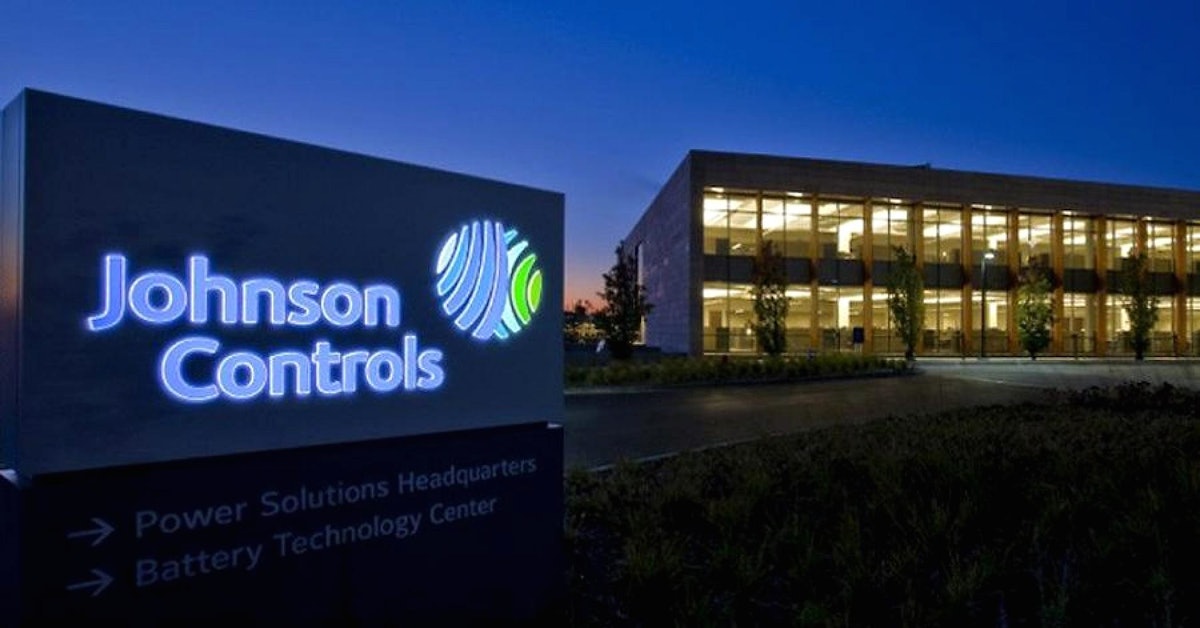
Website Johnson Controls
Quality Engineer
🚀 Johnson Controls is Hiring Quality Engineer: Build Your Future in Fire & Safety Systems
The global technology leader, Johnson Controls, is actively hiring for a Quality Engineer position. This is an exciting opportunity to join a company that drives innovation in buildings and infrastructure. Johnson Controls is a respected industry name, dedicated to smart, healthy, and sustainable environments. The open role for a Quality Engineer is critical for maintaining the high standards of their safety and security systems projects. If you are a dedicated engineer with a background in mechanical systems, this could be your next significant career move. Johnson Controls is Hiring Quality Engineer to improve project execution and system reliability.
Johnson Controls Company Profile
Johnson Controls is a worldwide leader in building products and technology, integrated solutions, and energy storage. The company helps customers optimize building performance and enhance safety and comfort. Johnson Controls operates in various segments, including HVAC, fire and security, and building management systems (BMS). The company’s mission is to rethink the performance of buildings to serve people, places, and the planet. Johnson Controls has a long history of innovation, consistently delivering solutions that make cities smarter and safer. When Johnson Controls is Hiring Quality Engineer, they look for individuals who share this commitment to quality and safety.
The focus areas of Johnson Controls include:
- Smart Building Technology: Creating integrated digital solutions.
- Fire & Safety: Providing essential fire detection and suppression systems.
- Security Solutions: Offering advanced access control and CCTV.
- Sustainability: Driving energy efficiency and reduced carbon footprint.
Joining Johnson Controls means becoming part of a team that influences the future of infrastructure.

Job Position: Quality Engineer Overview
Johnson Controls is Hiring Quality Engineer to work directly on significant fire safety projects. This position focuses on the quality of mechanical fire protection systems. The primary goal is to ensure the design, fabrication, installation, and final commissioning of fire safety equipment meets the highest quality standards.
The ideal Quality Engineer will be a creative Mechanical Engineer with specific expertise in Hydrant, Sprinkler, and Pump room systems. The job requires the engineer to translate design knowledge into high-quality fabrication and execution. A key objective for the Quality Engineer is to minimize field joints during system execution, which directly improves system reliability and reduces installation time.
This role requires a practical, hands-on approach to quality control throughout the project lifecycle. The Quality Engineer ensures that all mechanical components are fabricated correctly and that the overall system performs as designed.
Quality Engineer Job Description and Requirements
The role of Quality Engineer at Johnson Controls is multifaceted. It combines technical expertise in fire safety systems with essential project coordination and management skills. This position is vital for project success and customer satisfaction.
1. Technical Skills for the Quality Engineer
A strong technical foundation is mandatory for this Quality Engineer role. The engineer must possess system knowledge across various low-voltage and mechanical safety systems.
- Fire Alarm Systems (FAS): Understanding system components and integration.
- Public Address Systems (PAS): Knowledge of system function for emergency communication.
- Building Management Systems (BMS): Basic understanding of BMS operation and its safety interfaces.
- Access Control Systems (ACS) and CCTV: Familiarity with security system interfaces.
- Pre-commissioning and Commissioning: Basic knowledge of these processes for all safety, security, and BMS systems.
- Mechanical Fire Systems Expertise: Specific focus on design and application knowledge for:
- Hydrant Systems
- Sprinkler Systems
- Pump room Systems
The Quality Engineer must use this knowledge to ensure fabrication quality and execution efficiency.
2. Project Management and Coordination
The Quality Engineer acts as a central figure for project quality coordination. This involves working closely with many external partners.
- Execution Coordination: The Quality Engineer must execute projects in close coordination with:
- Project Management Consultants (PMC)
- Customers
- Consultants
- Other relevant agencies
- Communication: Excellent communication skills are essential. The Quality Engineer must facilitate effective collaboration among all stakeholders to maintain project quality and schedule.
3. Qualifications and Experience
Johnson Controls is Hiring Quality Engineer with specific academic and practical backgrounds.
- Qualifications: A Bachelor’s degree in mechanical engineering or a related field is required. This foundation is necessary for understanding the complexity of the mechanical fire systems.
- Experience: The ideal candidate is a creative Mechanical Engineer experienced in the full lifecycle of Hydrant, Sprinkler, and Pump room systems, from design analysis through to installation and final commissioning. Practical experience in applying design knowledge to fabricate mechanical components is key. The goal is achieving innovation and excellence in system execution.
4. Additional Requirements
The nature of project work requires flexibility.
- Travel: The Quality Engineer must be willing to travel and work across Maharashtra as needed to oversee project sites and quality control processes.
Quality Engineer Role: Focus on Quality and Execution
The central theme of this position is Quality. The Quality Engineer prevents defects and ensures compliance.
Key responsibilities for the Quality Engineer include:
- Design Review: Reviewing mechanical design documents for fire safety systems to ensure they are practical for fabrication and installation.
- Fabrication Quality Control: Overseeing the fabrication of components like pipes and fittings to ensure they meet specified standards and minimize field joints. The goal is to get the system execution in minimal Field joints.
- Installation Oversight: Monitoring on-site installation of Hydrant, Sprinkler, and Pump room systems to confirm correct procedure and adherence to quality plans.
- Testing Support: Working with the commissioning team to ensure pre-commissioning and commissioning tests are executed correctly and accurately recorded.
- Documentation: Maintaining accurate quality records and documentation throughout the project.
Johnson Controls is Hiring Quality Engineer to ensure projects are delivered safely, on time, and to the highest standard.
Get instant updates about premium job alerts: 👉 Click to Join WhatsApp Group
Top 10 Interview Questions for a Quality Engineer at Johnson Controls
Preparing for an interview with Johnson Controls requires understanding the specific technical and project management demands of the Quality Engineer role. These questions focus on the skills outlined in the job description.
1. Question: Explain your experience with Hydrant and Sprinkler system commissioning.
Answer: My experience includes overseeing the final stage of installation and testing for both Hydrant and Sprinkler systems. This involves checking pipe pressure tests, ensuring correct nozzle orientation and coverage, and confirming the system meets all design flow and pressure requirements during the commissioning phase. I focus on quality checks for pump functionality and control panel integration.
2. Question: How do you ensure mechanical components are fabricated to minimize field joints during system execution?
Answer: I focus on early engagement with the design team and fabricators. We apply design knowledge to create modular or prefabricated sections in a controlled workshop environment. This detailed approach to planning and pre-fabrication reduces the need for welding or joining on-site, directly minimizing field joints and improving the overall quality and installation speed.
3. Question: Describe a situation where your strong system knowledge of BMS or FAS was critical for project quality.
Answer: In a previous project, the Fire Alarm System (FAS) needed to interface with the Building Management System (BMS) for HVAC shutdown during a fire event. My system knowledge helped identify a programming error in the interface logic during quality checks. Fixing this early ensured compliance with safety regulations and correct system response, preventing a major issue during final acceptance testing.
4. Question: This Quality Engineer role requires coordination with PMCs and consultants. How do you manage conflicts or differing quality opinions among stakeholders?
Answer: I start by clearly communicating the project’s required quality standards and specifications as the non-negotiable baseline. If opinions differ, I bring all stakeholders to the table and present factual data or reference industry codes and project documents to support the required quality action. Effective communication and a focus on objective standards resolve most conflicts.
5. Question: What quality checks do you perform on a Fire Pump room system before commissioning?
Answer: Key checks include: confirming all pumps (Main, Jockey, Standby) are correctly aligned and secured; verifying the electrical wiring and control panel functionality; checking the suction and delivery piping for leaks and correct valve installation; and ensuring the system meets specified pressure and flow curves. Quality also means confirming correct fuel line and ventilation for diesel pumps.
6. Question: Why is a Bachelor’s degree in mechanical engineering important for this Quality Engineer position?
Answer: A Mechanical Engineering degree provides the fundamental principles needed to understand fluid dynamics, material properties, and stress analysis. This knowledge is essential for a Quality Engineer working on high-pressure Hydrant and Sprinkler systems. It allows me to assess component integrity, understand pump curves, and ensure the fabrication process does not compromise the mechanical strength of the system.
7. Question: What is your process for handling a non-conformance report (NCR) related to piping installation on a project?
Answer: My process starts with documenting the non-conformance clearly, noting the specific deviation from the specification. Next, I contain the issue by stopping further work in the affected area. I then determine the root cause, propose a corrective action (e.g., re-welding, replacing a section), and get approval from the consultant/PMC. Finally, I verify the correction and update quality records.
8. Question: The job requires travel across Maharashtra. How do you maintain quality standards consistently across multiple remote sites?
Answer: I establish a standardized Quality Assurance/Quality Control (QA/QC) checklist and a clear inspection and test plan (ITP) that every site must follow. I use digital tools for real-time progress reporting and photo documentation. Regular, scheduled site visits ensure personal oversight, but the use of consistent documentation ensures quality checks are standardized regardless of the location.
9. Question: How does your experience help you apply design knowledge to the practical fabrication of mechanical components?
Answer: My experience allows me to foresee fabrication challenges early. For example, I understand how weld shrinkage or incorrect material selection can impact system assembly. I work with the fabrication team to select the right welding procedure, ensure correct jigging to maintain dimensions, and specify cut lengths accurately, all based on the final system design requirements.
10. Question: In your view, what is the most important trait a Quality Engineer should possess at a company like Johnson Controls?
Answer: The most important trait is uncompromising attention to detail combined with proactive communication. A Quality Engineer must spot the small detail that could become a major failure. They must also communicate that potential failure proactively to the project team and stakeholders to ensure swift resolution, thereby protecting the quality and reputation of Johnson Controls.
Why Work as a Quality Engineer at Johnson Controls?
Choosing a career with Johnson Controls means stability, growth, and meaningful work. The Quality Engineer role is central to the company’s commitment to safety and excellence. Johnson Controls offers opportunities to work with cutting-edge technology in fire safety and security systems. The need for a dedicated Quality Engineer reflects the company’s focus on delivering high-quality, reliable solutions to its clients.
Johnson Controls is Hiring Quality Engineer to strengthen its technical execution team. The experience gained in this role, managing complex fire safety projects across Maharashtra, is invaluable for future career progression. This position allows a mechanical engineer to specialize in quality assurance and project coordination within a critical sector.
This is a high-demand, high-impact role. Johnson Controls is Hiring Quality Engineer who is ready to make a direct contribution to project success and safety. The company needs engineers who can deliver quality, drive efficiency, and collaborate effectively.
Would you like me to elaborate further on the technical aspects of the fire suppression systems mentioned, such as the design principles of a Hydrant system versus a Sprinkler system?
To apply for this job please visit jci.wd5.myworkdayjobs.com.

